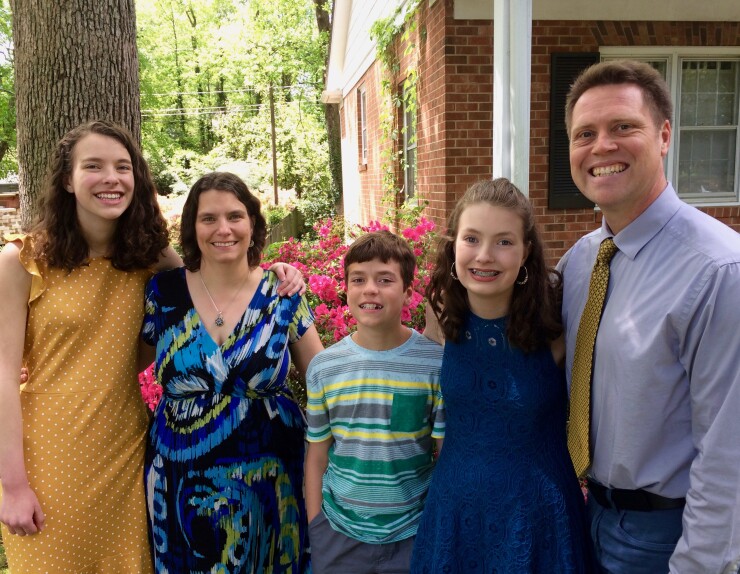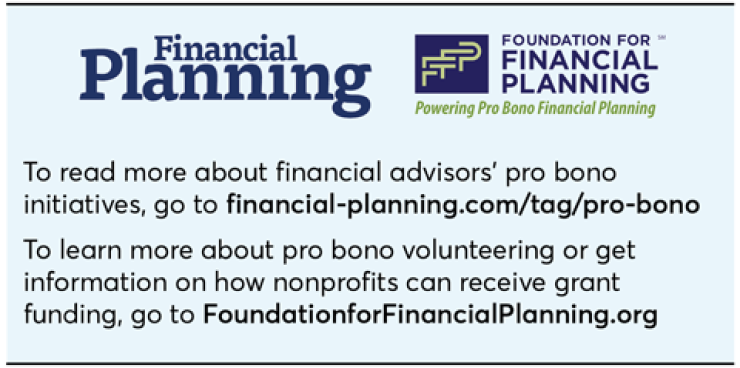Twelve days before Christmas in 2014, sixth-grader Lilli Hicks was diagnosed with acute myeloid leukemia, setting into motion a rush of tests, treatments and prescriptions that would consume her family's life for the next several years.
Nearly five years later, Lilli is heading into her junior year of high school cancer-free. But while the family’s eldest daughter has recovered physically, the Hickses are fighting a protracted battle to restore their financial health. Treating cancer and the unexpected costs that come with it — from parking at the hospital to removing asbestos-laden flooring in their home — put the family about $75,000 in debt, says Lilli's father, Travis Hicks.
"For three years we hit the maximum out-of-pocket" spending cap in their insurance policy, he says. "We maxed out all of our credit cards."
The debt could have been worse without family and friends, who held fundraisers and donated money. Aid also came from the nonprofit Family Reach, which helps patients navigate the finances of cancer care from its bases in Boston and Parsippany, New Jersey. Part of that mission includes setting clients up with advisors through the Foundation for Financial Planning.

Since teaming up with Family Reach in 2017 to start the Pro Bono for Cancer campaign, the foundation has provided free financial planning to more than 270 families from 38 states via a network of 135 volunteer planners.
Hicks worked with planner Steve Csenge of Csenge Advisory Group in Clearwater, Florida.
‘IT FORCES ME TO THINK ABOUT THINGS DIFFERENTLY’
Monica Dwyer is a CFP with Harvest Financial Advisors in West Chester, Ohio and a member of the Financial Planning Association (FPA), which helps recruit volunteers for the effort. In the last year Dwyer has worked with three families in the pro bono campaign.
Her first clients, a couple in their early 20s, faced $10,000 in medical bills after their son was born with brain cancer. They had no insurance. Before long their car was repossessed and, forced to leave their apartment, they moved in with his parents.
Dwyer had expected some of her pro bono clients to be irresponsible with money, and part of her job would be to help them.
"That's not what I found at all," she said. The couple was frugal. "They couldn't have cut corners anywhere," she says.
Instead, she coached the young mother on calling the hospital to ask for debt forgiveness. It worked. The hospital forgave the entire balance.
Others have been less fortunate. After 15 years of living with cancer, Dwyer's most recent pro bono client finds it hard to access many nonprofit services for cancer patients, such as the Patient Advocate Foundation and Imerman Angels. The woman can only muster energy for a few moments of housework or budgeting each day. Her lack of strength makes it nearly impossible for Dwyer to set up a financial plan.
Dwyer, more accustomed to discussing retirement savings or Roth IRA contributions, admits it is a challenge to have such limited options to help.
In this case, she shared some slow-cooker recipes, sent information about a possible bankruptcy filing and and worked with the woman and her son to put together a budget.
"It forces me to think about things differently than I normally would," she says of her clients' challenges. "I don't know what else to do except meet them where they're at."
-
Advisors must be prepared with tax and planning strategies to help when clients fall ill.
August 30 -
This exceptional woman is helping other women transition to better, more financially stable lives.
August 3 -
More than 130 survivors of a devastating California wildfire have received pro bono planning services that helped them begin to reassemble their lives.
March 20
The work has been rewarding for Dwyer. "What was really eye-opening for me was how pervasive cancer can be ... and how it touches every aspect of their lives."
"We help people that are very privileged all the time," she says. "This is a really good way to help people who would never have access" to financial planning.
'TO ME, THAT’S BEING A FIDUCIARY’
For clients fighting cancer, the stream of expenses can seem endless, says Yusuf Abugideiri, a partner with Yeske Buie, which has offices in San Francisco and Vienna, Virginia. Over the last year, Abugideiri and an assistant have worked with three families to develop a financial plan, meeting with each by phone four or five times. Each discussion takes him and his assistant three to four hours of prep work.
"It's not insignificant," says Abugideiri, who is based in the firm's Virginia office, but "it's some of the most fulfilling and rewarding work that we do."
It's work that gives him perspective on his own challenges. When he was matched with his second client a week before Thanksgiving, the task seemed impossible to fit in his packed end-of-year schedule.
The client was the father of a 13 year-old boy with cancer. In comparison, his problems seemed small.
At the time, Abugideiri was also a new father. His own son had not yet turned 1.
"I'm just sitting here trying to imagine being this boy's father," he says. "How do you say no?"
"If it was me, I would need someone to help me and I would hope that someone could," he says. "To me, that's being a fiduciary. Putting yourself in the client's shoes and [giving] what that person needs."
SCALING UP, LOOKING FORWARD
By the end of 2020, the foundation predicts it will have worked with 500 families fighting what CEO Jon Dauphiné calls "the financial toxicity of cancer."
"It can affect not only people's finances," he says, "but also their health outcomes ... the financial aftershocks can be lifelong and devastating.”
Dauphiné says he believes the program, which relies on virtual meetings, can scale up the number of families it serves. The foundation is also seeking donations from influential planning firms and advisors, he says.

Meanwhile, the Hicks family just celebrated the three-year checkup on Lilli's bone marrow transplant, which showed she is doing well. On the financial side, Travis and his wife LouAnne Hicks recently paid off their first credit card of the five they maxed out and are down to a total balance of $65,000.
Despite their progress, the cost of cancer care is still a burden. Each yearly checkup costs $4,000 to $5,000 out of pocket for a roughly three-hour visit.
Often, Hicks says, cancer survivors celebrate their recovery by ringing a ceremonial bell. The financial obligations that remain do not allow the same sense of closure.
"There's not really a ringing of the bell for your debts," he says. "The costs of cancer don't go away with treatment."





